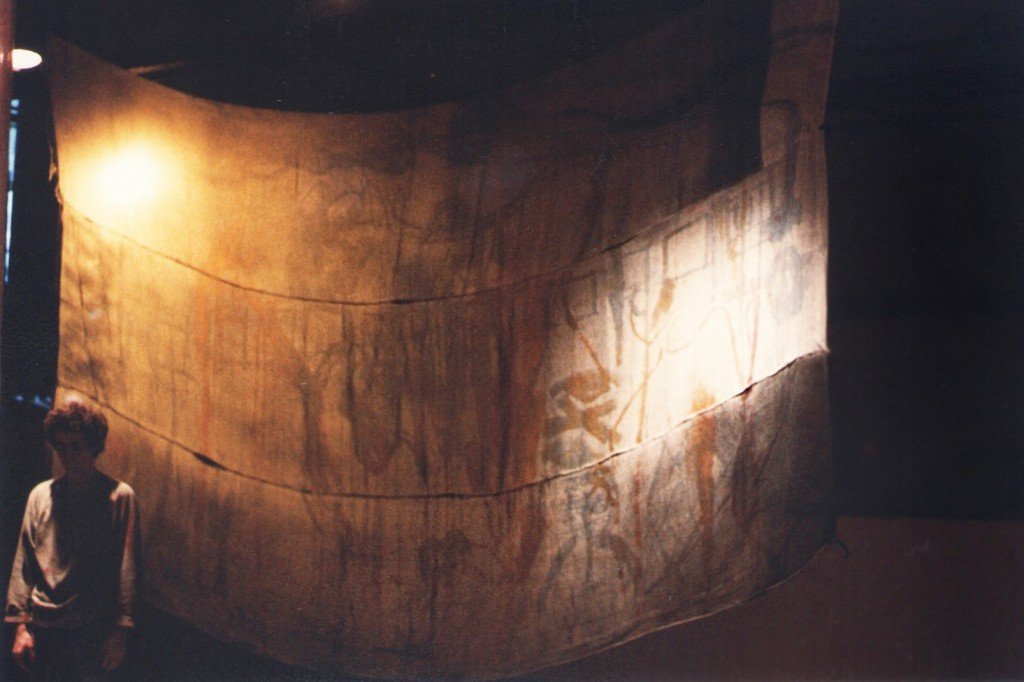
Narrative and Performance
Forays into understanding the limits and possibilities of linear forms with special attention to the ‘well-made’ play
Exploration of how meaning can be conveyed by eliminating language in two of Shakespeare’s plays. Influenced by the work of Grotowski, this work gave focus to the actor and his/her performance as story-holder.
Scenes from Macbeth and King Henry IV – Part I
In this phase of my work, I studied and applied Jerzy Grotowski’s performance theories and practices from his poor theater and laboratory theater phases with my own developing theory on the role of the performer and the relationship between director and the actors. I was curious to know what of the actor’s intent could be shared without language; what if all that was experienced was the actor’s deep presence and action limited to that which is motivated by the character’s intention. These two studies explored my version of Grotowski’s “via negativa” — a theatre that expressed the eradication of blocks instead of a set of skills. I created a rigorous process consisting of physical exercises and meditations aimed at freeing the performer to be what Grotowski would call the “total human being.”
Later work during this period investigated my role as director. How do I best engage with actors as a guide and facilitator to a process that supports actors in uncovering their most authentic presence in the space and with character. Influenced by Grotowski, I was at this time, searching for “the potential for an authentic and revelatory encounter between individuals” (Jennifer Kumiega, The Theater of Grotowski, NY: Methuen, 1985, p. 144) I was not interested in a theater that was illustrating or showing. I began at this time to recognize and theorize the potential of performance as a site of great possibility (see excerpt below) in addition to beginning to question the value of metaphor.
The Potential of Performance:
Excerpt from “At the Foot of the Mountain: Setting the Stage”
By Jacqueline G. Hayes c. 2004
At the Foot of the Mountain’s (AFOM) work is part of a continuum of feminists working in performance. AFOM, in its on-going utopian vision of being the most, best, feminist theater with the most rigorous politics, actually ended up the utopian dilemma: existence in both: “ou topos” — which means both the region where nowhere exists (outside theater) — and some where (else) — the region of happiness and perfection.1 Theater is a place where visions for its possibility abound. Ernst Bloch writes: “The stage is not just an illusion. It can also be an anticipation of what is to come for in it the resistance of the empirical world is eliminated. Utopia has the possibility to illuminate the possibilities and for rearranging social and political relations.”2 In addition to contributing to the visibility of women in theater, the modeling of politics in life and art, and the intelligence in its feminist agenda, AFOM has passed on a utopian impulse.
1. Baczko, Bronislaw, Utopian Lights: The Evolution of the Idea of Social Progress, NY: Paragon House, 1989.
2. Bloch, Ernst, The Utopian Function of Art and Literature. Cambridge, Mass.: MIT Press, 1989, p. xxxiii.
Macbeth